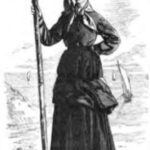Since their discovery more than 160 years ago, Neanderthals have gone from being seen as the losers of the human family tree to being considered first-rate hominids. In her essay “Neanderthals”, Rebecca Wragg Sykes uses cutting-edge research on the Palaeolithic to debunk clichés about our “distant cousins” and reveals Neanderthals as curious and intelligent humans, knowledgeable about their world, technologically creative and adaptable, who managed to survive for over 300,000 years through periods of colossal climatic upheaval.
This book is an open window for discussion and debate, aimed at both laymen and scientists who are tackling a task that is becoming ever more difficult, with surprising new discoveries that require detours and even 180° turns. Exciting research is becoming increasingly topical.
Collection: Multimedia
Project: 11. Science and culture as representation in Europe.
Chronology: -
Scope: Secondary Education
Link: https://www.youtube.com/watch?v=KE3QKT2C_g4&t=37s
Resource type: Video
Format: Multimedia
Owner: Arqueological National Museum of Spain (MAN) (Modernalia)
Abstract: Since their discovery more than 160 years ago, Neanderthals have gone from being seen as the losers of the human family tree to being considered first-rate hominids. In her essay "Neanderthals", Rebecca Wragg Sykes uses cutting-edge research on the Palaeolithic to debunk clichés about our "distant cousins" and reveals Neanderthals as curious and intelligent humans, knowledgeable about their world, technologically creative and adaptable, who managed to survive for over 300,000 years through periods of colossal climatic upheaval. This book is an open window for discussion and debate, aimed at both laymen and scientists who are tackling a task that is becoming ever more difficult, with surprising new discoveries that require detours and even 180° turns. Exciting research is becoming increasingly topical.
Tags





